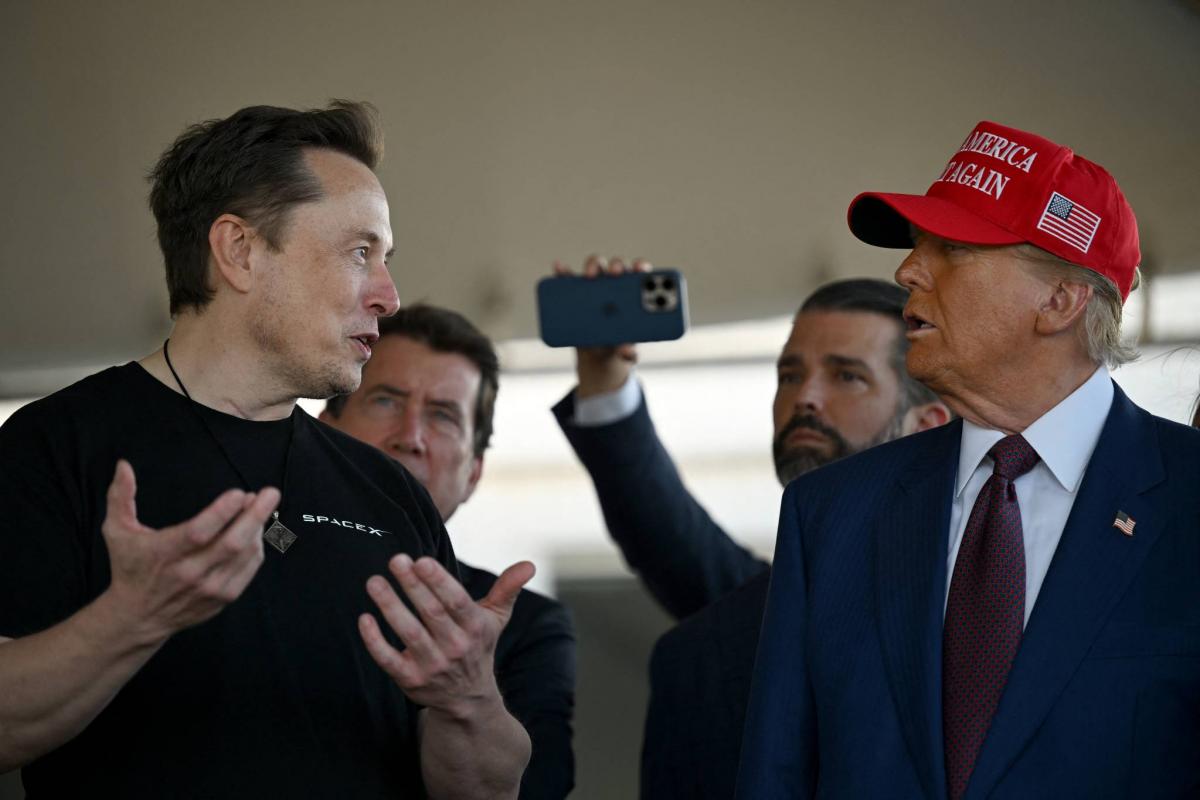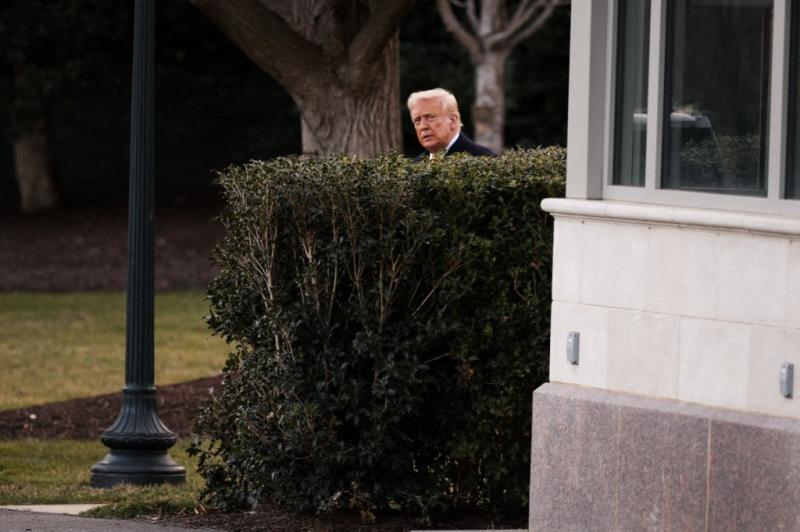Donald Trump plans to raise tariffs on all imports to 10% or 20%, depending on the product, up to 60% for Chinese imports, and as much as 200% for vehicle imports from Mexico. Europe and France are on the front line. The French government is worried about the recessionary effects. What is your opinion?
China is an exception, given the totalitarian and expansionist instincts of the Chinese Communist Party, and Trump has rightly understood this. However, in general, trade is the foundation of prosperity, whether between two individuals, two cities, or two countries. This principle is so fundamental that it is taught in the very first lessons of introductory economics. The tariffs proposed by Trump act as a tax, imposed on American consumers and foreign exporters. Certainly, the state would receive fiscal revenue, and a few inefficient American industries would be protected. However, the U.S. economy as a whole would suffer, along with the economies of its trading partners and the global economy. Nevertheless, it can be assumed that such draconian tariffs will not become Trump's actual policy but are a negotiating tool to secure bilateral concessions.
Can the WTO condemn and impose sanctions if the United States implements these tariffs, moving toward protectionism or even economic isolationism?
The U.S. president can invoke certain exceptional powers in matters of international trade. For example, the infamous "Section 301" allows the president to impose tariffs on countries accused of unfair practices (as Trump repeatedly emphasized during his campaign). Tariffs can also be imposed on national security grounds, as Trump did during his first term. In 2022, the WTO ruled that Trump’s tariff policies violated U.S. obligations. However, the WTO lacks enforcement power and operates on the good faith of its participants and a shared desire to facilitate international trade. Trump sees globalization and its multilateral system, including the WTO, as detrimental to American interests. Consequently, he is unlikely to concern himself with the judgments of an organization he views as part of the problem. This reflects a deeper and broader isolationist mistrust. Between the fall of Napoleon's Continental System and World War I, the world experienced a boom in international trade, followed by an isolationist retreat during the interwar period. Since 1945, and especially since the 1990s, international trade and globalization have grown significantly. The resulting growth has been enormous but uneven, leading some, Trump foremost among them, to challenge the system.
 Nikolai Wenzel
Nikolai Wenzel
Trump has pledged to eliminate inflation. The Democrats have paid a heavy electoral price for rising prices under Biden. Trump has promised to halve energy bills in his first year. Are these promises demagogic, or are they feasible?
Politics is full of irony! Kamala Harris bore the brunt of rising prices in the U.S., though Joe Biden was not responsible (his economic policies, "Bidenomics," are another matter but not the cause of inflation). As Milton Friedman explained, inflation is always and everywhere a monetary phenomenon. The U.S. government spent $5 trillion to address COVID. With federal debt already high and tax increases politically impossible, the government turned to the Federal Reserve, which monetized the debt and created $5 trillion. Inflation (20% between 2020 and 2024) may have been exacerbated by post-COVID demand and supply chain issues, but it fundamentally stems from this massive money creation.
As for energy prices, the cost of a barrel of oil was $70 in January 2017, at the start of Trump’s first term. Prices dropped during COVID but returned to $70 by April 2021, rising over two years due to geopolitical factors before stabilizing again at $70. Halving energy bills is an electoral promise, and inflation is already under control. However, Trump intends to tackle regulations that make the U.S. economy less efficient than it could be.
Will the new American administration continue the Inflation Reduction Act, a policy of subsidies to attract foreign companies to the U.S.?
The 2022 Inflation Reduction Act is essentially a budgetary measure given a politically appealing name. It primarily funds environmental initiatives, subsidies for renewable energy, and carbon emissions reductions—areas in which Trump has little interest. However, Trump is likely to extend Biden's shift toward a national industrial policy and support domestic production.
In 2017, during his first term, Trump reduced the corporate tax rate from 35% to 21% under the Tax Cuts and Jobs Act. For a potential second term, he has proposed lowering the corporate tax rate to 15% for certain companies. Is this feasible, given the federal government's need for revenue?
The OECD average corporate tax rate is 24%, so reducing the U.S. rate from 35% to 21% was not unreasonable. Furthermore, corporate taxes account for only 5% of total federal revenue. Thus, removing this additional barrier to economic growth aligns with a broader strategy to boost the U.S. economy, which already outpaces OECD averages in growth. However, the real challenge lies in public spending. U.S. federal debt exceeds 120% of GDP, with interest payments consuming 11% of the federal budget. Cutting taxes provides economic oxygen, but public spending must also decrease.
Elon Musk, appointed in Trump's future government as "Minister of Government Efficiency"... Can a state be run like a business?
No, a state cannot be managed like a business, as it is not subject to market discipline. The challenge of public administration lies in advancing the public good and addressing market failures without wasting resources. With federal spending at around $6 trillion annually (13% for defense, 11% for debt interest, and 60% for social programs, which constitutionally fall under state jurisdiction), there is ample room for efficiency improvements. The federal government accounts for 23% of the economy, while state and municipal governments account for another 13%. Additionally, 10% of GDP is spent annually to comply with federal regulations. Thus, nearly 46 cents of every dollar generated by the U.S. economy is managed by elected officials and bureaucrats rather than families, consumers, or entrepreneurs.
It remains to be seen how candidate Trump might evolve as President Trump. He aims to reduce income taxes while increasing consumption taxes (tariffs). He wants to decrease the federal government's size but avoided tackling debt or spending during his first term. Let’s hope Elon Musk and Vivek Ramaswamy, as new ministers of government efficiency, propose substantial cuts rather than marginal adjustments.
(*) Nikolai Wenzel is a university professor at the Universidad de las Hesperides (Spain), where he leads the master's program in economics. He is a senior fellow at the American Institute for Economic Research (Massachusetts), a member of the Academy of the Institut de Recherches Economiques et Fiscales (Paris), and a member of the Mont Pelerin Society.
 Politics
Politics














